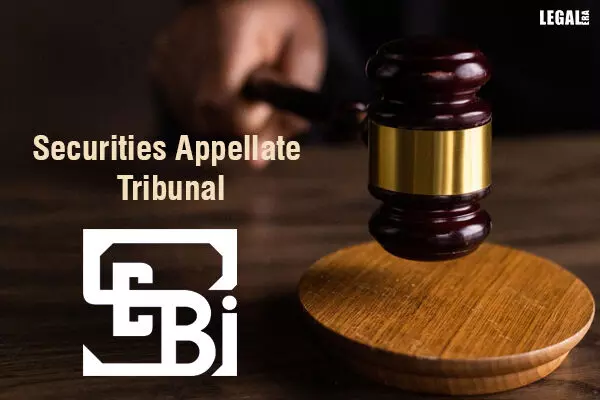- Home
- News
- Articles+
- Aerospace
- Agriculture
- Alternate Dispute Resolution
- Banking and Finance
- Bankruptcy
- Book Review
- Bribery & Corruption
- Commercial Litigation
- Competition Law
- Conference Reports
- Consumer Products
- Contract
- Corporate Governance
- Corporate Law
- Covid-19
- Cryptocurrency
- Cybersecurity
- Data Protection
- Defence
- Digital Economy
- E-commerce
- Employment Law
- Energy and Natural Resources
- Entertainment and Sports Law
- Environmental Law
- FDI
- Food and Beverage
- Health Care
- IBC Diaries
- Insurance Law
- Intellectual Property
- International Law
- Know the Law
- Labour Laws
- Litigation
- Litigation Funding
- Manufacturing
- Mergers & Acquisitions
- NFTs
- Privacy
- Private Equity
- Project Finance
- Real Estate
- Risk and Compliance
- Technology Media and Telecom
- Tributes
- Zoom In
- Take On Board
- In Focus
- Law & Policy and Regulation
- IP & Tech Era
- Viewpoint
- Arbitration & Mediation
- Tax
- Student Corner
- AI
- ESG
- Gaming
- Inclusion & Diversity
- Law Firms
- In-House
- Rankings
- E-Magazine
- Legal Era TV
- Events
- News
- Articles
- Aerospace
- Agriculture
- Alternate Dispute Resolution
- Banking and Finance
- Bankruptcy
- Book Review
- Bribery & Corruption
- Commercial Litigation
- Competition Law
- Conference Reports
- Consumer Products
- Contract
- Corporate Governance
- Corporate Law
- Covid-19
- Cryptocurrency
- Cybersecurity
- Data Protection
- Defence
- Digital Economy
- E-commerce
- Employment Law
- Energy and Natural Resources
- Entertainment and Sports Law
- Environmental Law
- FDI
- Food and Beverage
- Health Care
- IBC Diaries
- Insurance Law
- Intellectual Property
- International Law
- Know the Law
- Labour Laws
- Litigation
- Litigation Funding
- Manufacturing
- Mergers & Acquisitions
- NFTs
- Privacy
- Private Equity
- Project Finance
- Real Estate
- Risk and Compliance
- Technology Media and Telecom
- Tributes
- Zoom In
- Take On Board
- In Focus
- Law & Policy and Regulation
- IP & Tech Era
- Viewpoint
- Arbitration & Mediation
- Tax
- Student Corner
- AI
- ESG
- Gaming
- Inclusion & Diversity
- Law Firms
- In-House
- Rankings
- E-Magazine
- Legal Era TV
- Events
SEBI fined Rs. 50,000 by SAT for Disregarding its Ruling and Violating Judicial Discipline

SEBI fined Rs. 50,000 by SAT for Disregarding its Ruling and Violating Judicial Discipline
The Securities Appellate Tribunal (in short SAT) comprising of Justice Tarun Agarwala (Presiding Officer) and Ms. Meera Swarup (Technical Member) imposed a fine of Rs. 50,000 on Securities Exchange Board of India (in short SEBI) for non-complying its decision given by SAT in Suzlon (Energy) Ltd's case and violating the judicial discipline.
In the Suzlon case, the Tribunal held that penalty under 23E of the Securities Contracts (Regulation) Act, 1956 (in short SCR Act) cannot be imposed for the violation of the listing conditions in as much as Section 23E applies for non-compliance of listing conditions or delisting conditions of a company to be listed on the stock exchange and has nothing to do with the violation of the listing agreement.
The AO of SEBI on 18 October, 2022, imposed a penalty of Rs. 5 lakh on appellant- IFGL Refractories Ltd for violation of SCR Act. In its show-cause notice (in short SCN), the Board had alleged that IFGL Refractories had violated the provisions of the SEBI circular dated 18 October, 2019 along with Clause 6 C (I) of the SEBI circular and Regulation 4(1)(e) of the Listing Obligations and Disclosure Requirements) Regulations (in short LODR).
SAT asserted that in the case of IFGL Refractories, the violation, if any, is of the circular and had nothing to do with the violation of the listing agreement or the listing conditions under 23E of the SCR Act. It noted, that the imposition of penalty under Section 23E was patently erroneous, perverse and had been passed without any application of mind.
The Tribunal found that the appellant had placed reliance upon its decision in Suzlon's case, which was duly considered by the AO in paragraph 10 of the impugned order inspite of which the AO had observed that upon a plain reading of the Section, if the company fails to comply with the listing conditions or delisting conditions, the company would be liable for monetary penalty under Section 23E of the SCR Act and since the appellant had failed to comply with the listing conditions, the appellant was squarely liable under Section 23E of the SCR Act for the imposition of penalty.
However, the SAT held that such finding given by the AO were in complete disregard to its decision in Suzlon's case.
The Tribunal opined that its decision in the Suzlon case was binding on the AO and was required to be followed. The mere fact that SEBI has filed an appeal before the Supreme Court was not sufficient for the AO not to give effect to the order of the Tribunal in Suzlon's case.
SAT in its order stated, "While disposing of quasi-judicial matters, the AO is bound by the decision of the appellate Tribunal. The principle of judicial discipline requires that the order of the Tribunal should be followed unreservedly by the AO. Non-compliance of orders of the Tribunal has resulted in undue harassment to the litigant."



